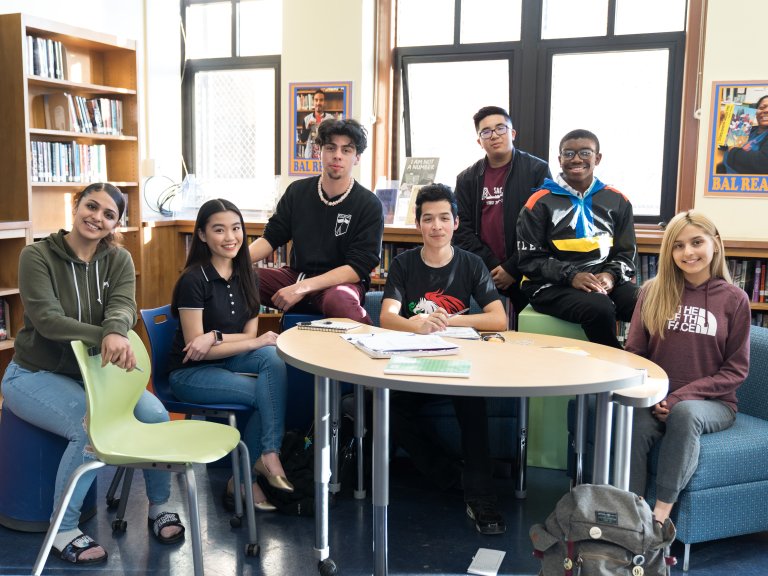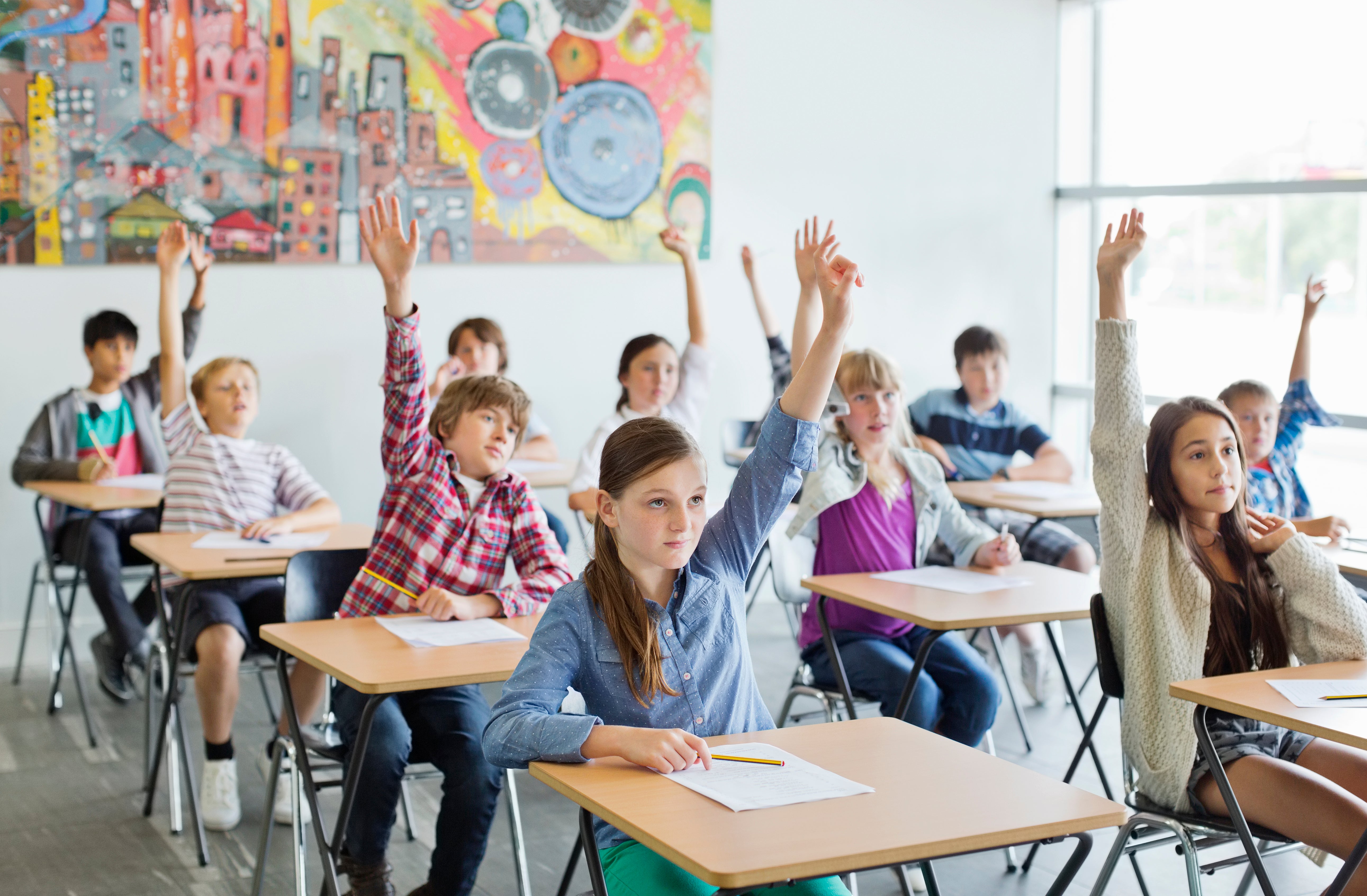Recognizing the Importance of Schools in Child Advancement and Neighborhood Development
Schools work as crucial institutions for kid growth and neighborhood growth, supplying settings where academic achievements are complemented by the growing of social skills and exposure to varied point of views. These instructional setups not only promote critical reasoning and reliable communication however additionally foster compassion via collective tasks. Schools' interaction with regional areas via service-learning campaigns strengthens the bond in between families and educational institutions. This cooperative connection highlights the importance of institutions in supporting active citizenship and lifelong learning routines. What are the certain systems by which these institutions achieve such extensive effects?
Academic Achievement
Academic success works as a foundation of child advancement, supplying the structure whereupon future knowing and success are built. Colleges play an essential role in fostering this academic development, providing structured atmospheres where youngsters can get crucial understanding and cognitive abilities. Standard educational program make certain that students gain efficiency in core topics such as mathematics, scientific research, and language arts, which are essential for both greater education and learning and specialist chances.
Along with presenting essential scholastic skills, institutions additionally grow crucial reasoning, analytic capabilities, and intellectual inquisitiveness. These cognitive proficiencies are vital for navigating complicated real-world situations and adjusting to the ever-evolving demands of the contemporary workplace. Teachers, as facilitators of understanding, utilize varied pedagogical methods to accommodate diverse knowing designs, consequently maximizing specific trainee potential.
Moreover, academic success is closely linked to self-confidence and inspiration. Children that experience academic accomplishments are more probable to develop a favorable self-concept and a lifelong enthusiasm for discovering. Institutions likewise offer various resources, such as libraries and innovation, which better improve the educational experience and prepare students for a technologically sophisticated society.
Social Ability Development
Beyond academic accomplishment, the function of institutions in social ability development is indispensable. Schools function as a primary place for kids to discover and exercise vital social abilities such as interaction, teamwork, and conflict resolution. In the structured environment of a class, pupils connect with peers, instructors, and other institution staff, offering countless opportunities to create these essential capabilities.
Efficient social ability advancement in schools is facilitated via team tasks, collaborative projects, and extracurricular programs. These interactions help pupils comprehend social norms, build compassion, and promote a sense of neighborhood. As an example, team projects teach students how to function together in the direction of a common objective, listen to various point of views, and navigate disputes constructively.

The farming of social abilities throughout school years lays a structure for future individual and expert partnerships. Save Temecula Schools. As students develop, the ability to efficiently connect and team up comes to be significantly crucial, emphasizing the school's important role in all natural child advancement
Direct Exposure to Variety
Direct exposure to diversity in institutions is fundamental to cultivating a comprehensive state of mind and expanding trainees' point of views. Schools work as a microcosm of the more comprehensive culture, and coming across varied cultures, languages, and socioeconomic backgrounds within this atmosphere gears up trainees with vital skills for navigating an increasingly globalized globe. This direct exposure motivates compassion, decreases bias, and advertises shared regard among peers.
Research indicates that students who connect with peers from different backgrounds display far better analytic abilities and creative thinking. This understanding of diversity prepares students for future work environments that worth multicultural capability - Save Temecula Schools.

Area Involvement
The benefits of varied class expand past the college walls, cultivating a strong sense of community engagement amongst pupils. By connecting with peers from numerous social, socioeconomic, and ethnic histories, students gain a broader perspective and a recognition for diversity. This direct exposure urges them to come to be energetic citizens that agree to contribute favorably to their areas.
Colleges that stress area involvement usually include service-learning jobs, which allow students to resolve real-world troubles while using academic skills. These tasks not just improve students' understanding of their coursework however also infuse a feeling of obligation and empathy. Partnerships between colleges and regional companies provide pupils with chances to participate in community events, better strengthening their role as proactive community participants - Save you could check here Temecula Schools.
Additionally, parental and area participation in schools reinforces the bond in between instructional institutions and the communities they serve. Through these initiatives, colleges play a critical function in supporting neighborhood engagement and promoting societal development.
Lifelong Discovering Practices
Developing lifelong knowing routines is crucial for a like it youngster's continuous growth and adaptability in an ever-changing world. Schools play a pivotal role in instilling these practices by producing an atmosphere that promotes interest, important reasoning, and a love for understanding. With extracurricular activities and diverse curricula, instructors urge pupils to discover different topics, evaluate info critically, and apply their finding out to real-world scenarios.

In addition, schools supply an organized environment where kids can create self-discipline and time administration abilities, both of which are important for continual learning. By stressing the importance of setting goals, mirroring on progression, and adapting methods, schools prepare trainees to navigate the intricacies of grown-up life, guaranteeing they remain lifelong learners and contributors to society.
Final Thought
In verdict, colleges are crucial in cultivating kid advancement and area development by providing environments favorable to academic achievement, social skill advancement, and exposure to diversity. Eventually, schools cultivate lifelong discovering behaviors, furnishing individuals with the essential expertise and skills to contribute favorably to society.
In the structured setting of a classroom, trainees interact with peers, instructors, and various other college team, offering many opportunities to develop these critical capabilities.
In significance, exposure to diversity within colleges not only enriches individual pupils but likewise strengthens the social textile of the neighborhood as a whole.
The advantages of varied classrooms extend beyond the school wall surfaces, cultivating a solid sense of community engagement among pupils.Colleges that emphasize community interaction often click here for more info incorporate service-learning projects, which allow pupils to address real-world problems while applying academic skills. Partnerships in between institutions and regional organizations give trainees with possibilities to get involved in area events, further strengthening their duty as aggressive area participants.